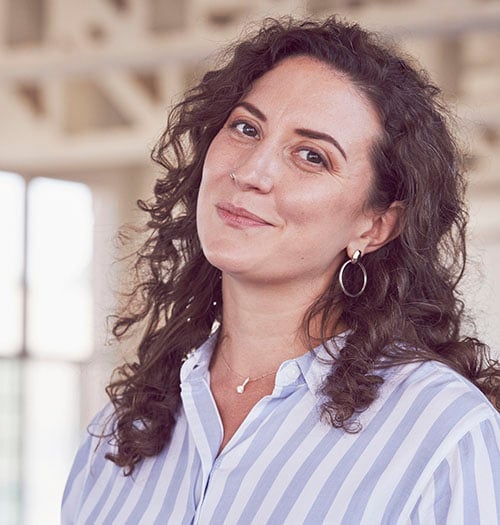We've been hearing "Love Yourself" a lot lately, and the relationship with yourself is a key component of any wellness journey. Though it seems like every celebrity and influencer preaches self-love, few give guidance on how to go about it. For someone struggling with self-love that lack of guidance and processes can feel overwhelming.
Here are 5 tools I use as a wellness coach to support my clients in working on their relationship with themselves.
What is Self-Love?
Self-Love might seem too abstract for science to weigh in, but Dr. Deborah Khoshaba sums it up well:
"Self-love…is a state of appreciation for oneself that grows from actions that support our physical, psychological, and spiritual growth. Self-love is dynamic."
By Dr. Khoshaba's definition, self-love isn't a box you check but a process that continues to grow as you do. One that encompasses all aspects of who you are, learning to accept less-positive pieces, embracing your struggles, and seeking well-being. In her framing, self-love is also a practice. Similar to meditation or yoga, where you grow through repeatedly engaging with the principals involved.
Like other aspects of the wellness journey, working towards self-love doesn't happen overnight and it's different for each of us. However, some common tools can support you on your self-love journey.
5 Steps for Practicing Self-Love
Here are 5 guiding steps you can use to guide your self-love practice, or as a wellness coach with your clients:
Step 1: Mindfulness
You cannot intentionally change something you're not aware of. Like many other aspects of self-work, practicing self-love begins with mindfulness. Becoming aware of times, you're harsh, critical, dismissive, or even cruel to yourself may be uncomfortable, but it's also necessary to learn to love yourself. Observing your patterns may bring up underlying beliefs that are counter to self-love.
An example from my own life, I have an internal habit of calling myself a moron when I make small, simple mistakes. However, mistakes are human and don't mean I'm any less intelligent or capable. Becoming mindful of that habit was essential to begin the work of changing it.
Step 2: Self Care
When we love something, we take care of it, especially if that thing cannot take care of itself. Our plants, pets, homes, and children are all examples. What might be less obvious: caring for something also builds a sense of love and responsibility. When you're struggling with self-love it's time to double down on self-care. Meaningful self-care practices focus on meeting your foundational needs as a person.
Imagine for a moment that you, as an adult, are responsible for taking care of the kid version of yourself. What does little-kid-you need? Nourishing foods, water, sleep, and safety are probably all obvious. But some needs may be less obvious. Comfort and understanding, running around, and climbing a tree, someone to help you make sense of the world when it feels confusing, fun, interest, learning, and growing are all examples.
Just like the younger versions of ourselves, we have the same foundational needs to thrive. Practicing self-love is built on the foundation of self-care.
Step 3: Build a Sense of Safety
While safety is a foundational need, you can be physically safe and still not connect to the feeling of safety. When something is loved it is kept safe. Not only physically but also psychologically, emotionally, and socially. Anxiety, fear, and unintegrated trauma are all examples of not feeling a sense of safety.
As you continue to grow in mindfulness and self-care you may become more aware of situations or individuals who don't feel good or prioritize your well-being. We begin to advocate for social, emotional, psychological, and physical safety.
Toxic relationships become intolerable, and boundaries become essential. You no longer tolerate people or circumstances that take advantage of you because they're hurting something you love: yourself.
Step 4: Feed Your Sense of Self
There are many aspects of what makes up a "self.” Here's who we are at work, with our families, our friends, and who we are on a date. All different expressions of the same person. Building self-love means investing time in who you are outside the roles and responsibilities others put on you.
Most of us have roles we relate to employee, boss, parent, child, friend, and partner. Alongside those identities are the things we do that affirm who we think we are. Our hobbies, interests, dreams, and goals aren't driven by what other people expect of us.
As we're swept up in the demands of our lives or struggling to cope, we often de-prioritize what once fed our passion, purpose, and meaning. As you continue to grow in your practice of self-love, those actions become anchors to the self we're loving.
• What self-affirming interests, passions, hobbies, or activities do you (or did you once) have?
• Or, if you're not sure, what might you explore to reconnect to yourself now?
• What did you like when you were 5?
• What did you tell yourself you had to do when you were 15?
Still not sure? Make a list of things to try and recruit your friends.
Are no friends willing to join your exploration? Join a club, find a meetup, or take beginners' coursework in the topic you're interested in. In a world where content creators are making courses for nearly every interest, you'll likely find a low-cost option you can learn the basics and find out if your interest is something you genuinely like.
Step 5: Process What You Learned, Then Live Your Life
Though it's labeled Step 5, this concept applies throughout. Taking the time to process what we're learning allows us to reflect on the lessons we're learning, integrate any challenges, and apply those learnings forward. This is also one way a coach can help reflect and process as you continue to grow.
A regular journaling practice, meditation, or routine download conversation with a trusted friend are all ways you can revisit what you're trying, examine any lessons, and decide how to move forward.
We've also all had that plant that we overwater or over-trim. One important part of any self-love or wellness journey is recognizing when you've gotten to a good place and learning to enjoy the fruits of your self-work. Processing and integrating your learning also allow you to see when you've built the life you were looking for and give yourself permission to enjoy it and love yourself.
For additional information, please check out our NASM Certified Wellness Coach course.
Conclusion
Practicing self-love is not about reaching a sustained state of bliss, where you never feel off or unhappy again. Through practice, you'll learn valuable tools for coping, learning, and growth. That way when challenges arise, you're more resilient in your authentic love of self.
Through mindfulness and self-awareness, you may also encounter beliefs that are painful or triggering. At those times a therapist can be an invaluable ally in working through trauma, mental health challenges, and growing love for yourself.

















